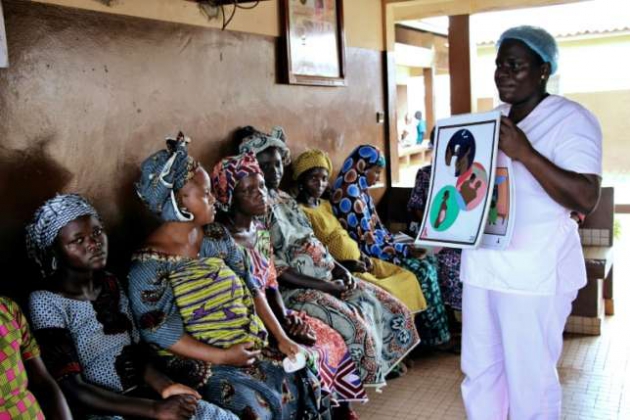‘Why Nigeria is investing more in family planning’

Why is Nigeria restrategising on family planning?
Family Planning is one of the strongest anti-poverty strategies and low-hanging fruit for reducing maternal mortality. The success of the introduction of family planning as part of basic health in the health sector is to ensure that a woman’s right as a human right is realised. We want to include Family Planning as part of basic healthcare.
This is to complement ante-natal services, and immunisation routine. Under this commitment, we will remove all barriers so as to improve access. We will remove regulatory barriers and scale up access to new contraceptive methods, such as sub-cutaneous Depo Medroxyprogesterone Acetate injections (Sayana Press).
To transform its last-mile distribution of health and family planning commodities as a country, we will use a push-model system, and collaborate with the private sector to optimally transport, store and track commodities using an electronic logistics management system. A new tracking and accountability system will report yearly and real-time, expenditures for family planning at national and state levels. There will be a distribution of $6million to states through loans to the success of introduction of family planning as part of basic health in the sector.
How do you want to get this project done?
The government will increase the number of health facilities providing family planning services in each of its states and Federal Capital Territory (FCT) to 20,000 and leverage its 10,000 functional primary health care facilities to raise awareness about family planning. In this vein, Nigeria will partner stakeholders and gatekeepers to reduce socio-cultural barriers for family planning services, by collaborating with ministries to ensure the provision of age-appropriate sexual and reproductive health information to youth through the Family Life Health Education Curriculum and youth-friendly services in health facilities and other outlets. To address financial barriers, the government will collaborate with states, donors and other stakeholders on a health insurance scheme to make household family planning expenditures reimbursable.
Why is this project receiving so much commitment?
With a population of over a 400 million, by 2050, Nigeria may soon emerge as the largest country in the West Africa region and the third largest in the world – that will be demographic disaster as a country. Nigeria has over 3.8 million married and sexually active adolescents – from 15 to 19 of whom 19 percent have an unmet need for contraception. If Nigeria was to increase its focus on adolescents, enabling an additional 584,000 adolescent girls to use modern contraception by 2020, then Nigeria would see a 14 percent reduction in its adolescent birth rate. That is why we are investing in our youths, adolescents, and women. We must invest in the girl child for demographic dividend. Reducing unplanned pregnancies, unsafe abortions and improved health and well-being is important to reap demographic dividends. Access to contraception and family planning programmes is one of the most cost-effective ways to break the cycle of poverty.
And you think it won’t be another white elephant project?
Most barriers have been identified. All these barriers will also be removed, and policies implemented with new vigour by partnering the private sector-Patient medicine/drug vendors to ensure commodities get to the targeted end users. Barriers to the success of family planning will be identified and brought down, just as the Berlin wall was brought down in those days. Serious focus is to break down the barriers hindering females, especially women and youths, from accessing commodities and services. This will bring us to speed with modern day use of contraceptives.
The ministry will be collaborating with its partners and the private sector to achieve a modern contraceptive rate of 27 percent among all women by 2020. We have realised that there is a huge disparity between optimal uses of modern contraceptives across the country. In the Northeast, the use of modern contraceptive use is about three percent and about 35 percent in the Southeast.
We are doing things in a different way to ensure Nigeria is not left behind in the attainment of FP2020. Nigeria’s commitment of four million dollars will go a long way in reaching thousands of women and girls with critical reproductive health information. This project is domicile in the office of the vice president.
Read more at http://thenationonlineng.net/nigeria-investing-family-planning/












